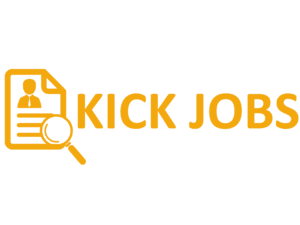Recruiters usually don’t read every word on your resume. They quickly look for specific words that match the job they’re hiring for.
The same goes for Applicant Tracking Systems —it scan your resumes for these keywords. Having the right keywords in your resume increases your chances of being considered for a job. In this guide, you will learn:
- The importance of keywords in a resume
- How to use keywords in your resume
- Examples of resume keywords.
- Tips for writing a resume
What are Resume Keywords?
Resume keywords are specific terms or phrases included in resumes that directly relate to specific job positions. They act as a bridge between your qualifications and the recruiter’s requirements, playing a vital role in getting your resume noticed. In essence, they are the secret sauce that can unlock the door to your dream job.
Resume keywords encompass a wide range of elements, including skills, job titles, certifications, and industry-related terminology. These words and phrases are typically found in job descriptions, and incorporating them into your resume can make it more attractive to applicant tracking systems (ATS) used by many employers to streamline the hiring process.
For example, if you’re applying for a project management position, relevant keywords might include “project planning,” “budget management,” “team leadership,” and “risk assessment.” Tailoring your resume with these keywords ensures that it aligns with the specific requirements of the job.
Types of Keywords You Can Include in a Resume
Understanding the types of keywords to include in your resume is essential for creating a document that stands out. Here are three main categories to consider:
a. Hard Skills Keywords: These are specific, teachable abilities or knowledge, such as programming languages, data analysis, or foreign languages.
b. Soft Skills Keywords: These describe your personal attributes and interpersonal skills, such as communication, leadership, and adaptability.
c. Industry-Specific Keywords: These are terms and phrases unique to your field or profession. For instance, in marketing, keywords might include “SEO optimization,” “content creation,” and “brand strategy.”
How to Use Keywords in Your Resume?
Strategically placing keywords throughout your resume is key to optimizing its effectiveness. Consider the following tips:
a. Tailor Your Resume for Each Job:
Customize your resume for each position by incorporating keywords from the job description. This not only aligns your qualifications with the role but also increases your chances of passing through ATS.
Related How to tailor your resume for different job applications in 2024
b. Use a Skills Section:
Dedicate a section of your resume to highlight your key skills. This not only makes it easy for recruiters to identify your strengths but also ensures that crucial keywords are prominently featured.
Related What sections should I include in my resume?
c. Integrate Keywords Naturally:
Instead of listing keywords in a separate section, integrate them organically into your work experience and achievements. This demonstrates a practical application of your skills.
Tips for Writing a Resume
Beyond incorporating keywords, crafting an effective resume involves several essential tips:
a. Highlight Achievements:
Instead of merely listing responsibilities, emphasize your achievements in previous roles. This not only demonstrates your value but also provides additional opportunities to include relevant keywords.
Related 7 Best Ways To Showcase Your Skills In A Resume
b. Quantify Your Achievements:
Whenever possible, use numbers to quantify your accomplishments. Whether it’s increasing sales by a certain percentage or managing a team of a specific size, quantifiable achievements grab attention.
c. Keep It Concise and Readable:
Recruiters often have limited time to review each resume. Keep yours concise and easy to read, using bullet points and clear formatting to highlight key information.
Examples of Resume Keywords
To provide a clearer picture, let’s look at examples of resume keywords for different professions:
Marketing Manager Keywords
- Digital Marketing Strategy
- Social Media Management
- Content Creation
- SEO Optimization
- Brand Development
- Market Research
- Campaign Management
- Data Analysis
- Lead Generation
- Email Marketing
- Marketing Analytics
- Budget Management
- Stakeholder Engagement
- Competitive Analysis
- Marketing Automation
- ROI Measurement
- Customer Relationship Management (CRM)
- Brand Strategy
- Marketing Communications
- Team Leadership
b. Software Developer Keywords
- Programming Languages: Java, Python, C++, JavaScript
- Web Development
- Software Development Life Cycle (SDLC)
- Agile Methodology
- Database Management
- Code Optimization
- Full Stack Development
- Frontend and Backend Development
- API Integration
- Version Control (e.g., Git)
- Object-Oriented Programming (OOP)
- Debugging
- Software Testing
- Continuous Integration/Continuous Deployment (CI/CD)
- Frameworks (e.g., Spring, Django, React)
- Cloud Computing (e.g., AWS, Azure)
- Mobile App Development
- RESTful API
- Security Best Practices
- Problem-Solving and Troubleshooting
c. Finance Keywords
- Financial Analysis
- Budget Management
- Forecasting
- Risk Management
- Financial Modeling
- Investment Analysis
- Financial Reporting
- Cash Flow Management
- Accounting
- Auditing
- Asset Management
- Treasury Operations
- Compliance
- Tax Planning
- Cost Control
- Financial Planning
- Corporate Finance
- Portfolio Management
- Financial Strategy
- Financial Markets







